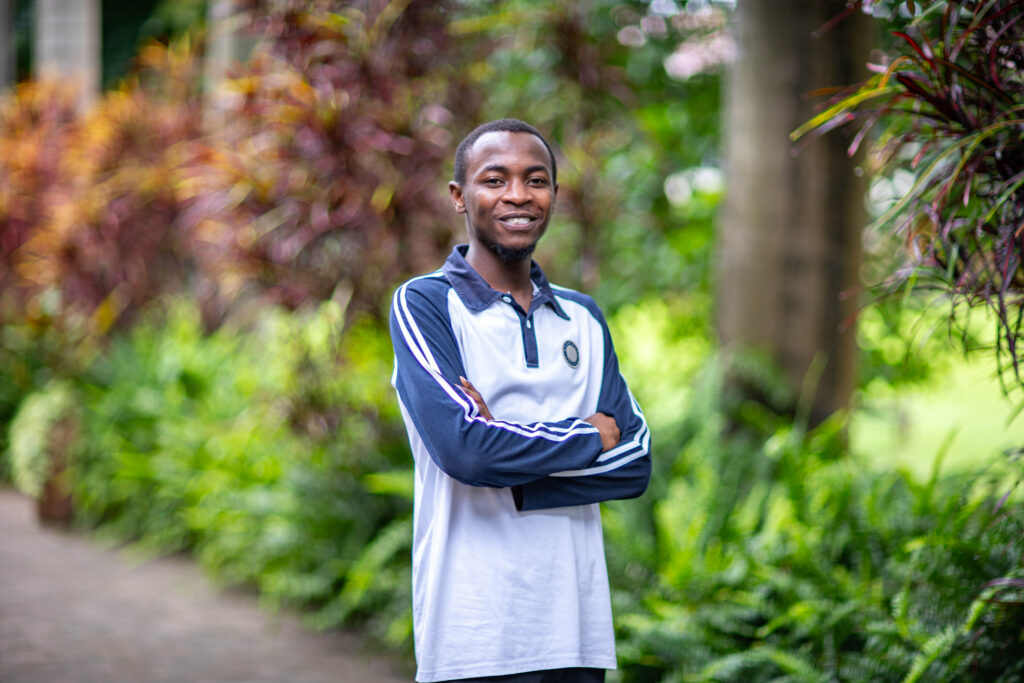Emmanuel, Form 4 graduate from the Class of 2020, is no stranger to innovation. The last time we caught up with him, he had developed his own automatic handwashing system to tackle hygiene challenges during the COVID-19 pandemic. Today, he’s taken his vision even further, turning local solutions into projects that impact communities across Africa.
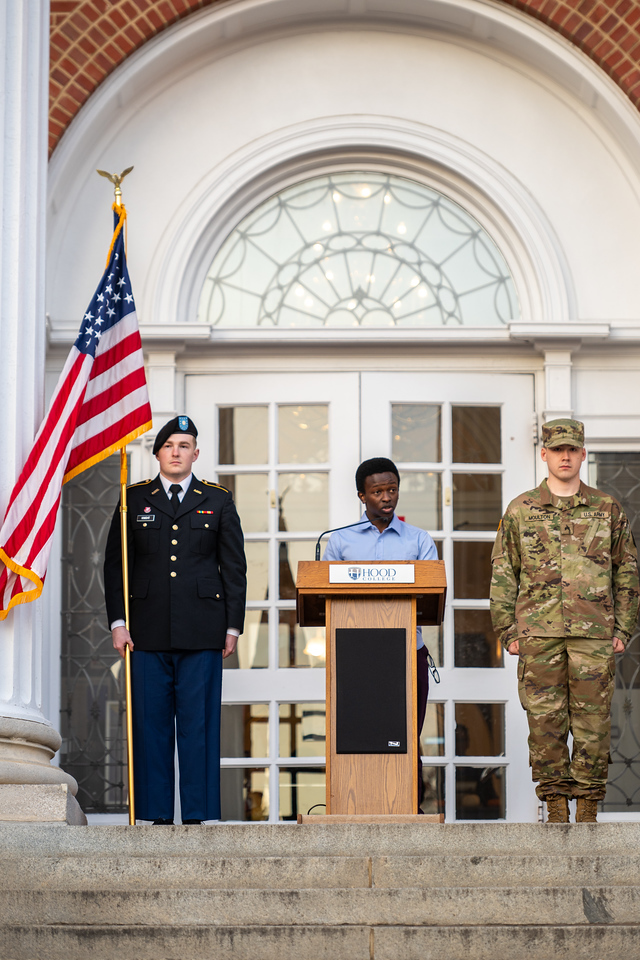
On the international stage: Emmanuel received the Davis Peace Prize in early 2024, an award that helped him establish the peace Library in Zanzibar.
During the COVID-19 pandemic, at just 18 years old, he saw the urgent need for clean water and proper hygiene to protect his community's health. Driven by his passion for children’s rights and a safe environment, he created a foot-operated handwashing machine to reduce hand contact and limit germ transmission.
His invention led to the installation of over 400 handwashing machines across northern Tanzania, significantly promoting better hygiene and helping to reduce the spread of the virus. This innovative effort quickly caught UNICEF’s attention, leading to his appointment as a youth ambassador, expanding his mission of improving health access and awareness.
Soon after, he was named one of 9 Young African Activists to Look Out for in 2022 by Global Citizen, furthering his advocacy horizon.
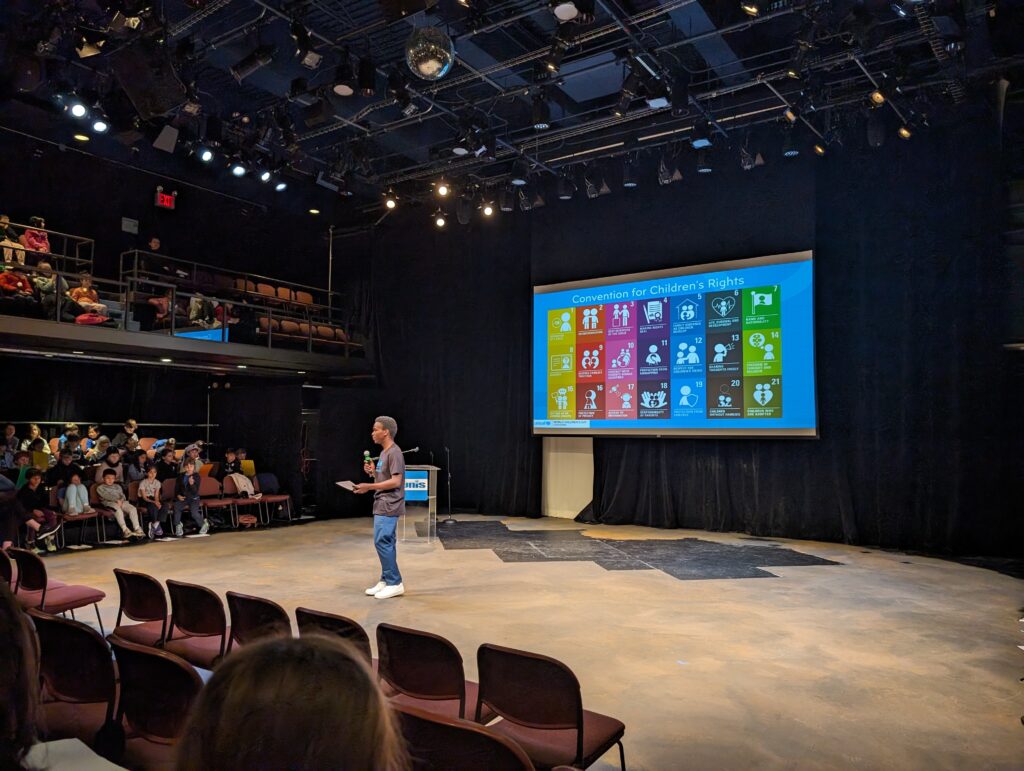
“It was an incredible honour that motivated me to keep pushing for change. This recognition opened doors for partnerships and collaborations, allowing him to scale his impact and inspire more youth to take action,” he says.
With the success of his handwashing machine, he went on to establish a community library under his peace project. The Peace Library in Kizimkazi, Zanzibar was established by Emmanuel, thanks to the Davis Peace Prize that he won in early 2024, and support from the Assalam Foundation.
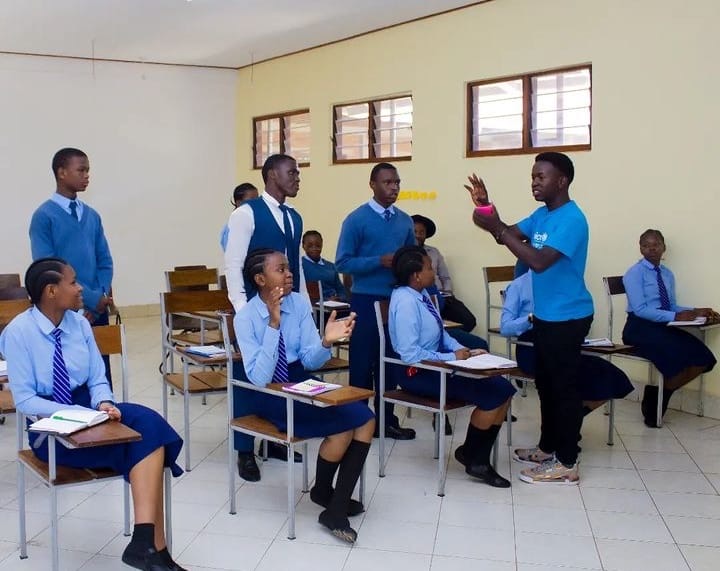
“The idea for the library was fuelled by my conviction that peace education begins with accessible knowledge. I envisioned a vibrant space where students could explore peace, leadership, and advocacy, equipping them to become peace ambassadors in their communities and fostering long-term social change,” he says.
Emmanuel describes it as more than just a library; it’s a thriving space where children can learn, connect with their cultural roots, and build community. With a theatre hall that accommodates over 400 people, the library hosts gatherings, events, and features screens displaying educational resources, opening doors to knowledge and connections beyond Zanzibar.
His mission? “I want to inspire African youth to create change,” he says.
Through workshops and public speaking, he reaches young people across the continent, rallying them to advocate for climate, education, and peace. His journey is a call to St Jude’s alumni, showing the impact they can have in leading Africa forward.
Growing up in Tanzania’s busy cities, Benson was surrounded by the roar of motorbikes and endless car horns. But beneath the everyday chaos, he saw something many missed; a pattern of problems such as youth unemployment, urban congestion, and rising pollution fuelled by an outdated way of moving people and packages.
With a childhood friend and a shared vision for a greener future, Benson co-founded FikaChu, a smart, electric bicycle delivery platform designed to tackle three major urban challenges with one bold idea. They source components from original equipment manufacturers (OEMs) in Asia, then assemble the bicycles and integrate them with their mobile app in Tanzania.
"We kept asking ourselves, what if the mobility solution could also create jobs and clean the air? That’s how FikaChu was born,” says Benson.
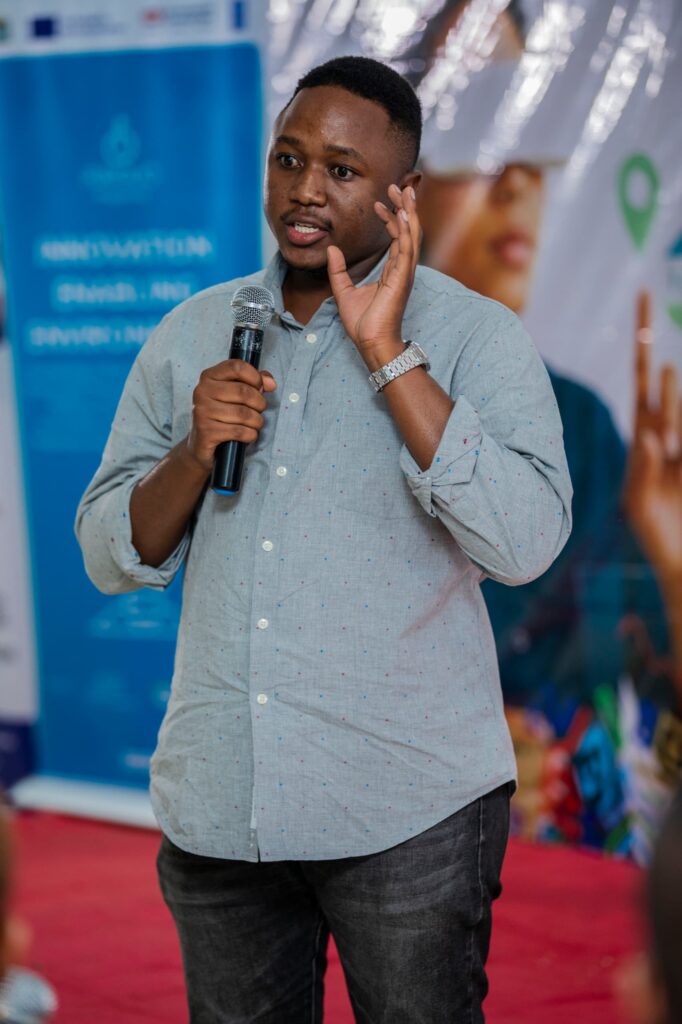
The concept is simple, but the impact is profound. Benson envisions that FikaChu connects small and medium-sized businesses with customers in Dar es Salaam, through a fleet of gig workers using electric bikes. No personal vehicle is required, just scan, ride, deliver, and return. The result? A remarkable 94% reduction in emissions compared to traditional motorbike deliveries.
“A typical internal combustion engine (ICE) motorcycle emits about 100g of CO2 per kilometre, while our electric bikes emit only 6g, that’s just 6%,” says Benson.
Earlier this year, Benson took FikaChu to the national stage at Innovation Week hosted by the Institute of Accountancy Arusha. It was his first time pitching in front of a large crowd, and he had just two minutes to make a lasting impression.
“The hardest part wasn’t the nerves. It was condensing everything our why, our how our vision into something unforgettable,” he says.
He did just that. Out of more than 30 innovators, Benson took home the first runner-up award validating that FikaChu was more than a clever idea. It was a movement in motion. Today, FikaChu is in its pilot phase, weaving through the streets of Tanzania as the team tests, adapts, and dreams bigger. They’re refining logistics, listening to feedback, and laying the groundwork for scale, all while keeping people and planet at the core of every decision.
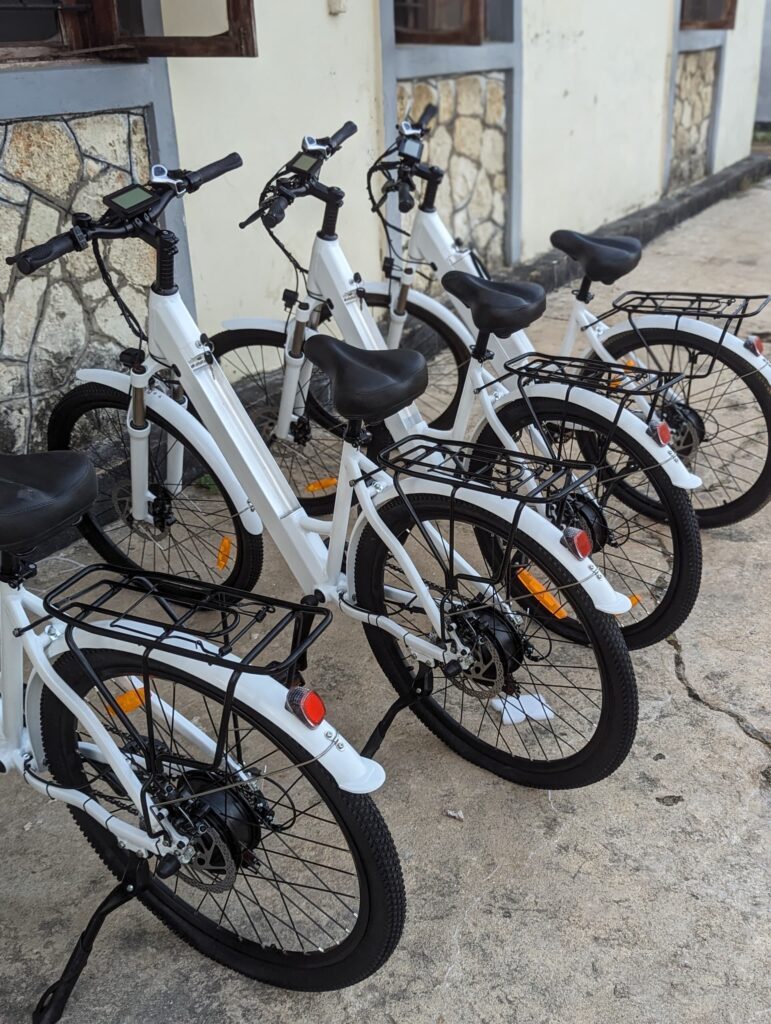
“We’re not just building a company; we’re building a community. And we’re wide open to
partnerships, support, and collaboration,” he adds.
For Benson, innovation doesn’t begin in a lab or a corner office; it begins with courage. The courage to look at a daily problem and ask, what if?
“To any young person with an idea; start. Don’t wait for the perfect moment. Fail forward if you must, but move,” he adds.
When asked about how he competes with traditional motorbikes (bodaboda) he explained their approach.
“Before accepting a delivery task, we provide the rider or customer with a trip comparison analysis. This includes the estimated time it would take using a FikaChu e-bike versus a bodaboda, the amount of fuel a motorbike would consume, and the total cost savings they would get by choosing our service. We also show how much CO2 emissions they can avoid by going electric. It’s not just about speed, it’s about making an informed, ecofriendly, and cost-effective choice,” he says
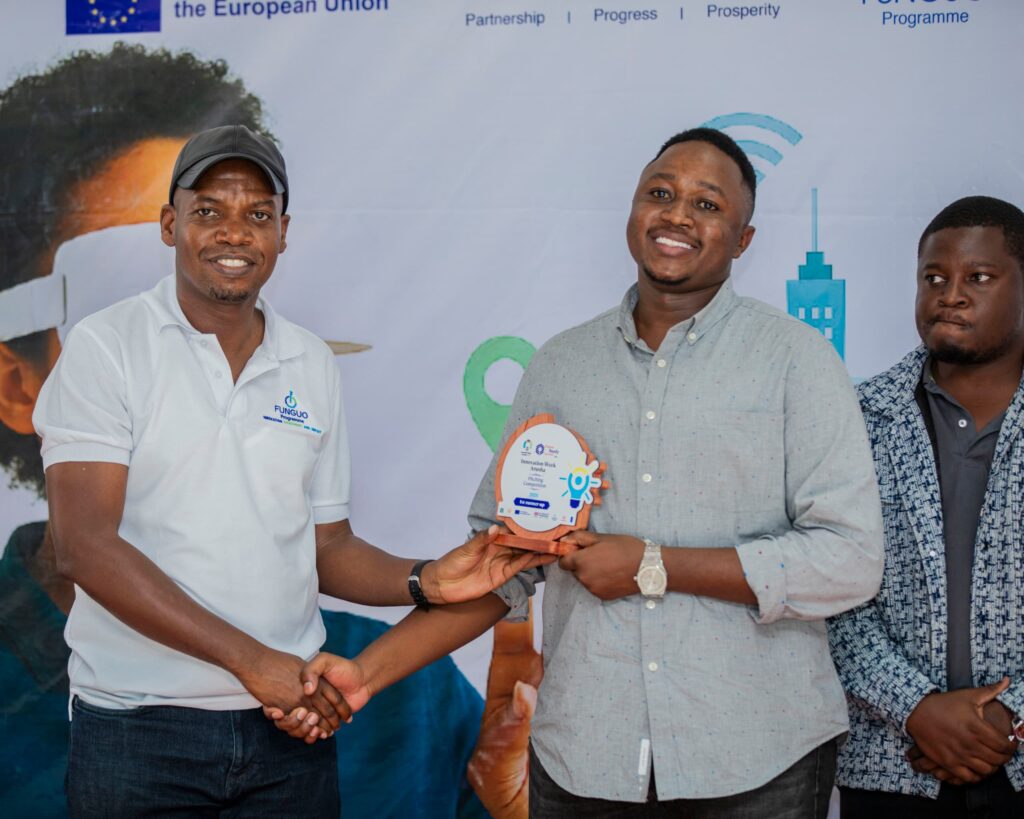
Through FikaChu, Benson isn’t just delivering goods; he’s delivering hope, a cleaner future, one ride at a time. With a growing fleet of five electric bikes, each capable of covering up to 50 kilometres on a single charge, he’s proving that small steps can drive big change. So far, FikaChu has successfully completed over 1,300 deliveries, and in the process, opened a new doorway to employment for young Tanzanians eager to earn, learn, and contribute to a greener economy.
We are immensely proud of our alumni like Benson, whose journey began with a dream to learn and make a difference. He has transformed challenges into opportunities for youth, communities, and the environment.
When Angel first walked through the gates of The School of St Jude, she was a bright student with big dreams but few resources. Thanks to the generosity of donors and sponsors, she gained not just a quality education but the confidence and tools to lead change.
Her journey began in 2017, when she and her friend Sharon shared a love for science and innovation. Their first major creation, a simple yet life-changing electric stick for the visually impaired, took them to the Project Inspire boot camp in Dodoma. That experience sparked a lifelong commitment to using innovation for good.
A year later, their banana peel fertiliser project took them to Science Week at the Nelson Mandela Institute of Science and Technology, where future African scientists, engineers and leaders learn to solve local challenges and drive progress across the region. By the time they reached A Level, Angel and Sharon were leading environmental initiatives on campus, from maintaining green spaces to inspiring fellow students to think sustainably.
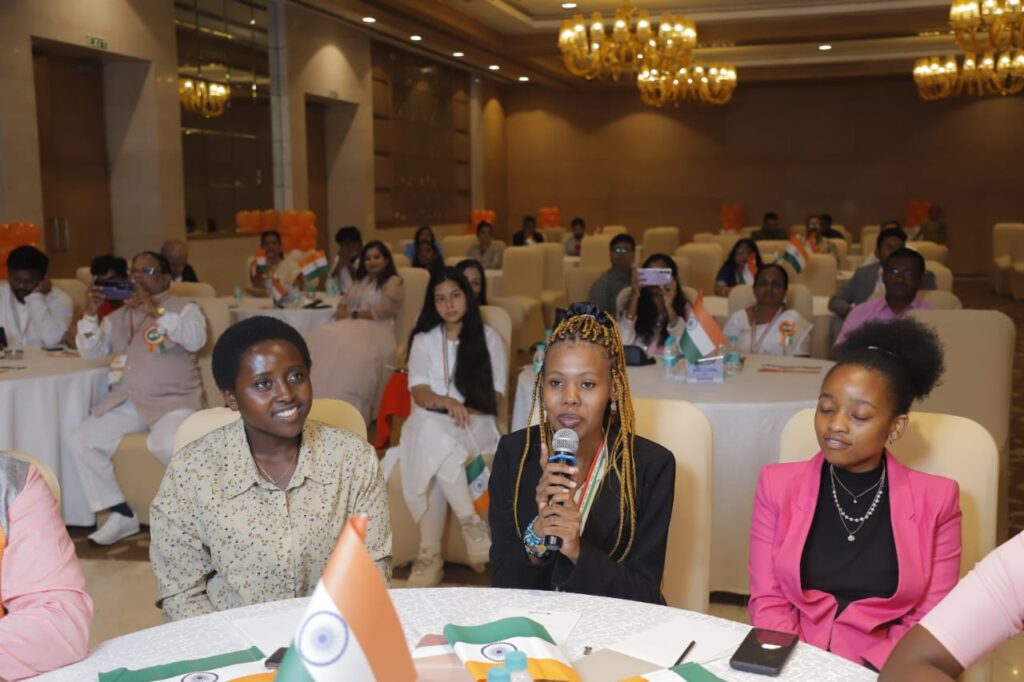
Out of this passion, Angel founded E.C.H.O. Elevating Climate Harmony Ontime, a youth-led non-governmental organisation (NGO) focused on tackling climate change. In 2024, E.C.H.O. made history by winning the prestigious Humanitarian Excellence Award from the I CAN Foundation, triumphing over entries from all 28 Indian states and more than 80 competitors worldwide.
The award recognized E.C.H.O.’s tangible impact on:
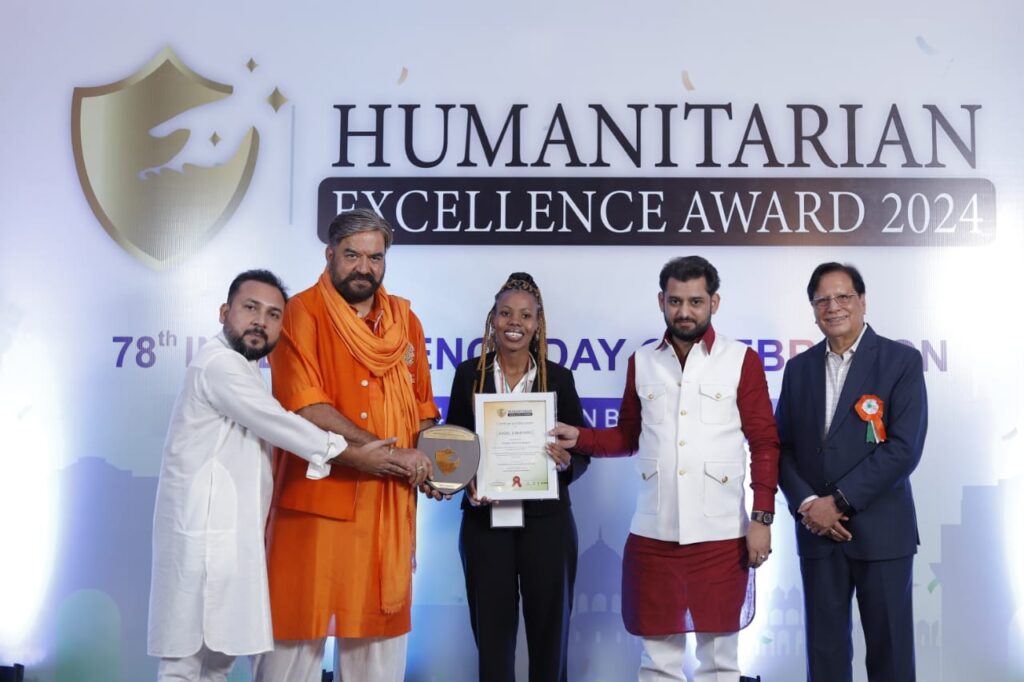
Now back in Tanzania after completing her studies in India, Angel is determined to bring her expertise home and is designing solar-powered cooling systems for farmers, developing sustainable irrigation, and building climate resilience in vulnerable communities.
Angel’s story is your story too. Without your generosity, this young leader might never have had the chance to dream this big, let alone inspire change on a global stage. Your support is not just educating students. It is equipping them to tackle some of the world’s most pressing challenges.
Johnson, Class of 2022, is on a mission to universally help students manage the daily pressures of school and build stronger mental resilience with his newly published book, 7 Mental Health Tips for Students: Become a Successful and Happier Student.
Johnson’s inspiration for the book came from his own experiences as a student.
“When I was in school, I loved spending time in the library, reading and talking to teachers,” he recalls.
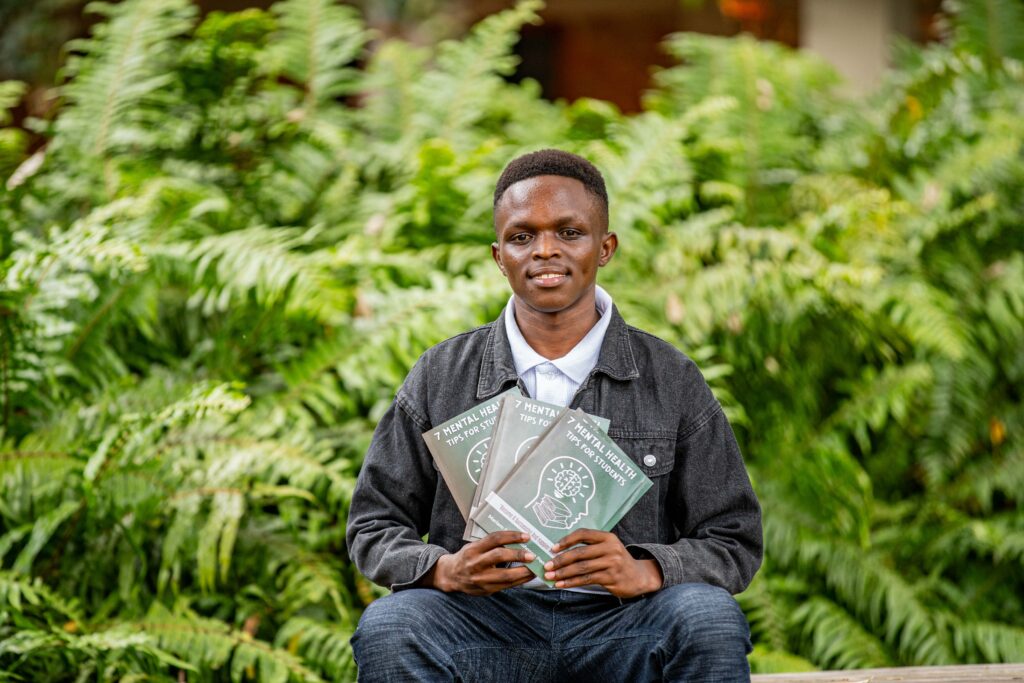
In 2023, Johnson completed his Community Service Year (CSY), a program where St Jude’s graduates spend a year volunteering in government schools, academic teams or head office at St Jude’s.
While teaching at a government school, he spoke with many students and conducted research to better understand how they coped with stress and balanced their wellbeing alongside academic demands.
Through this process, he noticed a broader gap in available resources. While many books focused on personal development, few addressed the real mental health challenges students faced when pursuing academics.
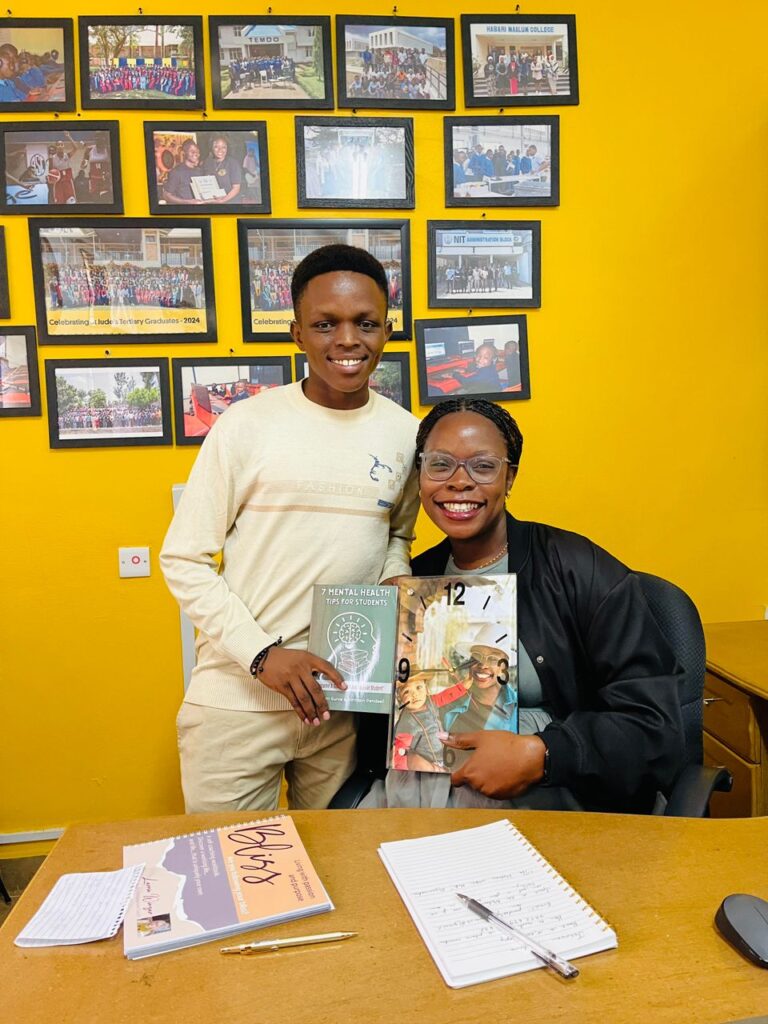
“When I was at the government school, I asked all types of students about the daily challenges they faced with stress. I saw there weren’t many books for just students on this,” says Johnson.
Motivated to do more, Johnson continued exploring the topic after starting his studies in Business Administration at Ashesi University in Ghana, where he recently completed his second year. It was during this time that he connected with Mariam, a clinical psychologist.
“Mariam was the guest speaker on a webinar about student wellbeing that I was part of. Afterwards, I reached out to her and we connected. She is leading the Wellness Within Hub, which provides workshops and resources for students,” he says.
Mariam was eager to support Johnson in bringing this idea to life, and together, they co-wrote the book over the span of a year. They intentionally kept it short and easy to navigate, recognising that many students are discouraged by lengthy books.
“Before we started writing, I also did lots of research, read books and spoke to lecturers and peers from different countries. But working with Mariam was great because she is very open to feedback and willing to change ideas. She also brought so much experience and credibility. I learnt a lot from her.”
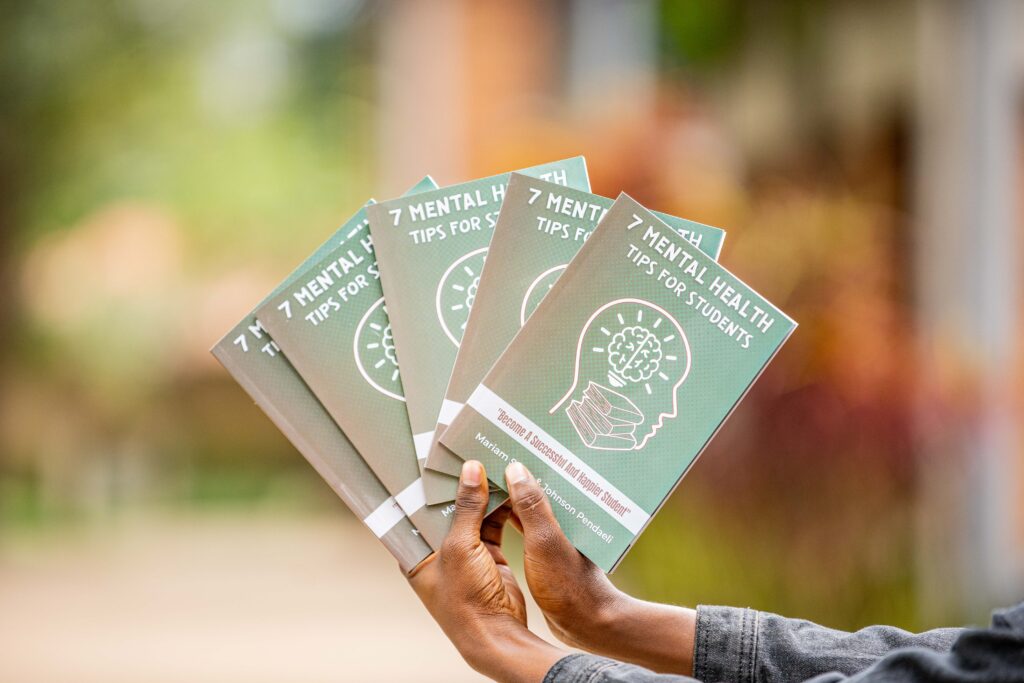
When asked about his favourite tip in the book, Johnson refers to what is known as ‘The Four A’s of Managing Stress: avoid, adapt, accept and alter.’
“This approach is useful for everyone, not just students. There’s no way to be completely free of stress, but you can become more resilient in how you manage it. We also wanted to make the book as short as possible for students to be able to skim through it so they can get the exact content relevant to them,” he adds.
When the hard copy was released, Johnson arranged for fellow St Jude’s alumni, who were beginning university in Ghana, to bring 500 printed copies of the book with them from Tanzania.
“It feels like a real achievement to see this book come to life. Some of my lecturers bought the book, and it’s available through the counselling department and wellness committee at Ashesi as a resource for students,” he adds.
Inspired by this experience, Johnson plans to write more books in the future, noting that this is just the beginning.
“I never thought when I was sitting in the library as a student that I would become an author one day. It was a challenge managing my university curriculum while writing the book. I wrote a lot on weekends. I also wrote in the early mornings and sometimes late at night,” he says.
Just this month, he returned to the very government school where the inspiration for his book first took root, invited by the headmaster to speak with students about mental health.
“This summer, I have also applied for some grants so I can help more students get this book, especially in rural areas like the one I taught at. I want this to be a resource for more students,” adds Johnson.
For now, copies are eagerly circulating among St Jude’s staff and university communities, with hopes to broaden its reach in the near future.
It’s been ten years since Anna stood proudly in her graduation gown as part of the first-ever graduating class of The School of St Jude in 2015. While much has changed since that milestone moment, Anna’s connection to the school has remained strong - coming full circle earlier this year when she started sponsoring a student scholarship.
“In January, I started sponsoring the scholarship of a Standard 1 student named Careen. I came to the school and had the opportunity to meet her. I can’t even describe the experience. It was just incredible,” says Anna.
For Anna, sponsoring Careen's education stemmed from a desire to give back – both for the education she received and to support her community.
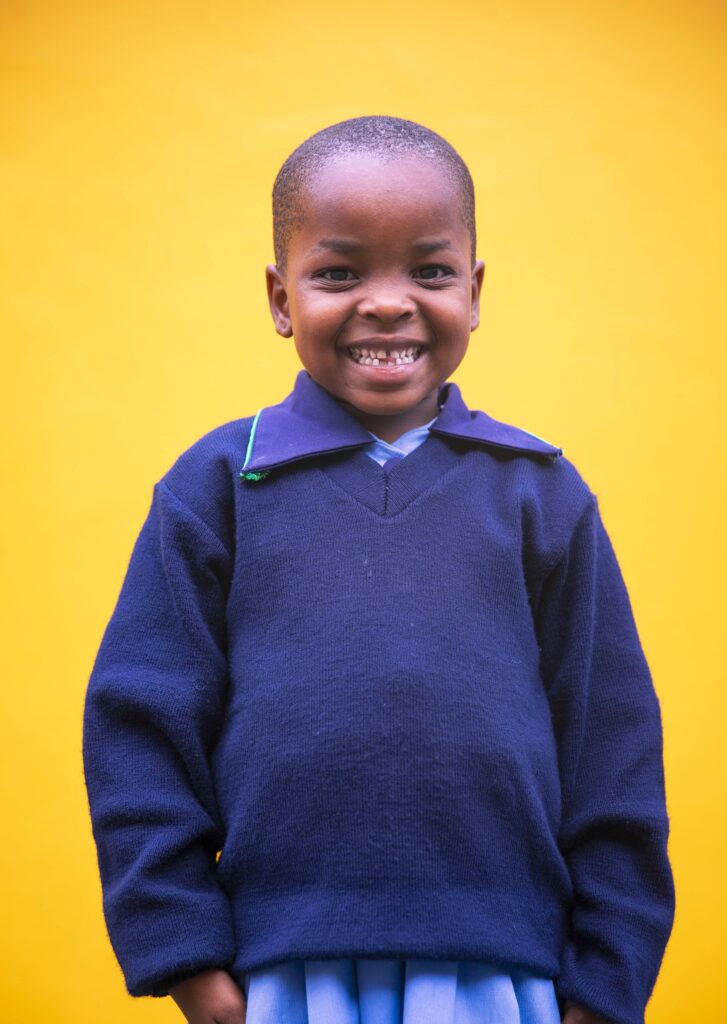
“When I was a student, there were people who were generous enough to sponsor my education, and now I have the chance to do it for somebody else. It’s more than financial support; it’s holding someone’s hand on the path to becoming like myself, and even more,” she adds.
Anna’s commitment to giving back began well before this year. After graduating from St Jude’s, she spent a year teaching at a government school through the Community Service Year (CSY) program that places volunteers in government schools across Arusha and nearby regions, as well as in various non-teaching roles within St Jude’s. Since the program’s inception, St Jude’s alumni have taught more than 170,000 government school students.
“When I was teaching, I saw how strained and under-resourced most government schools are. When a student joins St Jude’s, they are lucky to receive all these resources, from the teachers to the library and everything else. It’s life-changing,” says Anna.
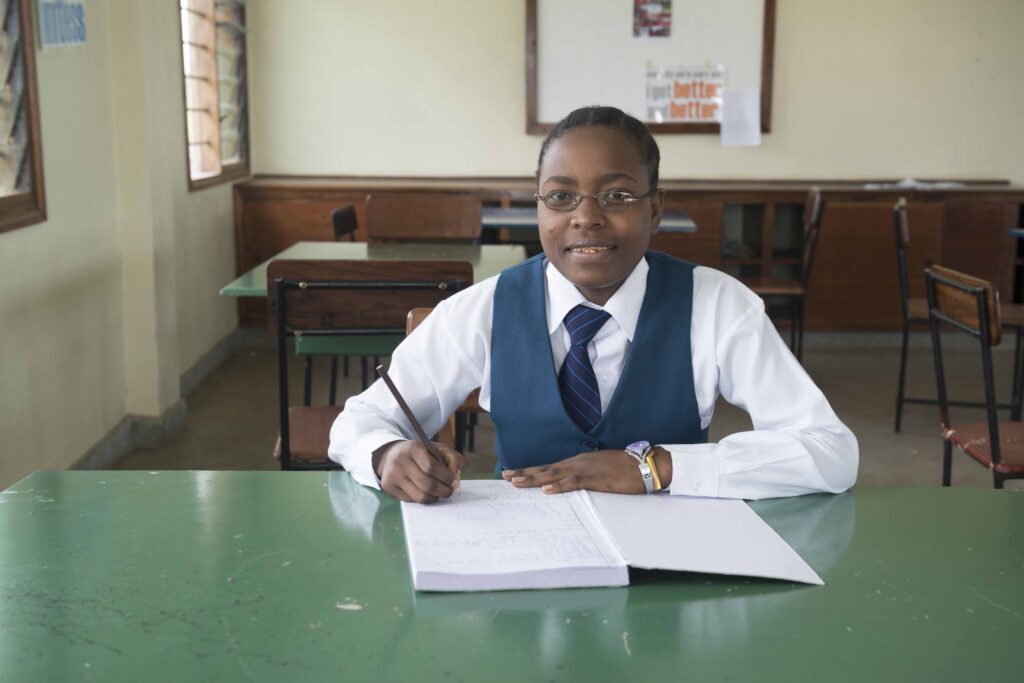
Anna knows this transformation firsthand. Before joining St Jude’s in Form 1, she attended a government primary school where all her classes were taught in Kiswahili.
“When I graduated from Form 4, four years after being at St Jude’s, I was the best student in English. The school shaped me in every way to be prepared for the future. Now, when I think about work, I don’t just think about getting a job and a salary; I think about how my work can change the world and touch lives,” she says.
Following her CSY, Anna earned a Bachelor of Commerce majoring in Accounting in Dar es Salaam before returning to Arusha to work in the St Jude’s Accounts team.
Having been both a student and staff member, Anna has gained a unique perspective on the school’s holistic education, one that goes beyond academics to develop well-rounded individuals.
“We weren’t only taught subjects like physics, chemistry and mathematics, but also things like entrepreneurship and the importance of giving back to our communities. It shaped me in a way that I was ready to face the world not only with academic skills but with life skills too which is really important,” she adds.
Late last year, Anna took on a new role with Toyota but remains closely connected to the school. She hopes that, in time, more alumni will be able to sponsor student scholarships once they are in a position to do so.
“Every year, we have around 150 to 200 graduates, and 20 years from now, there will be thousands and thousands of students who have graduated from St Jude’s,” she says.
“If just 10 to 15 alumni from each graduating class sponsor one student scholarship each, you can imagine how many sponsors we’ll have in 20 years, and the impact that will make. From having people sponsor us when we were young and then us as alumni sponsoring our ‘younger ones,’ it’s the biggest thank you there is.”
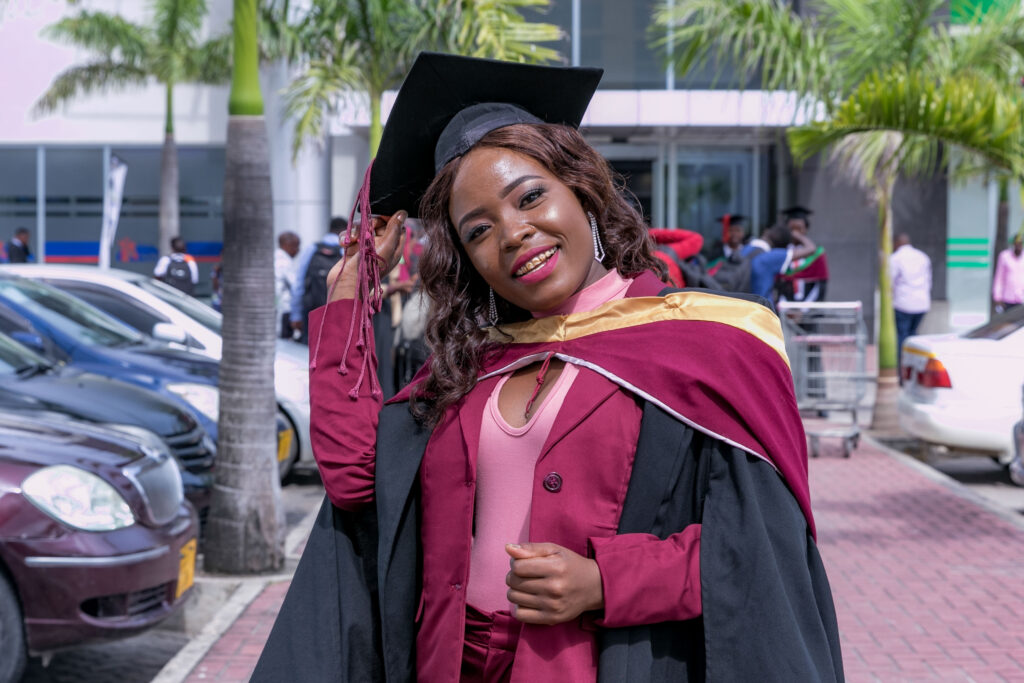
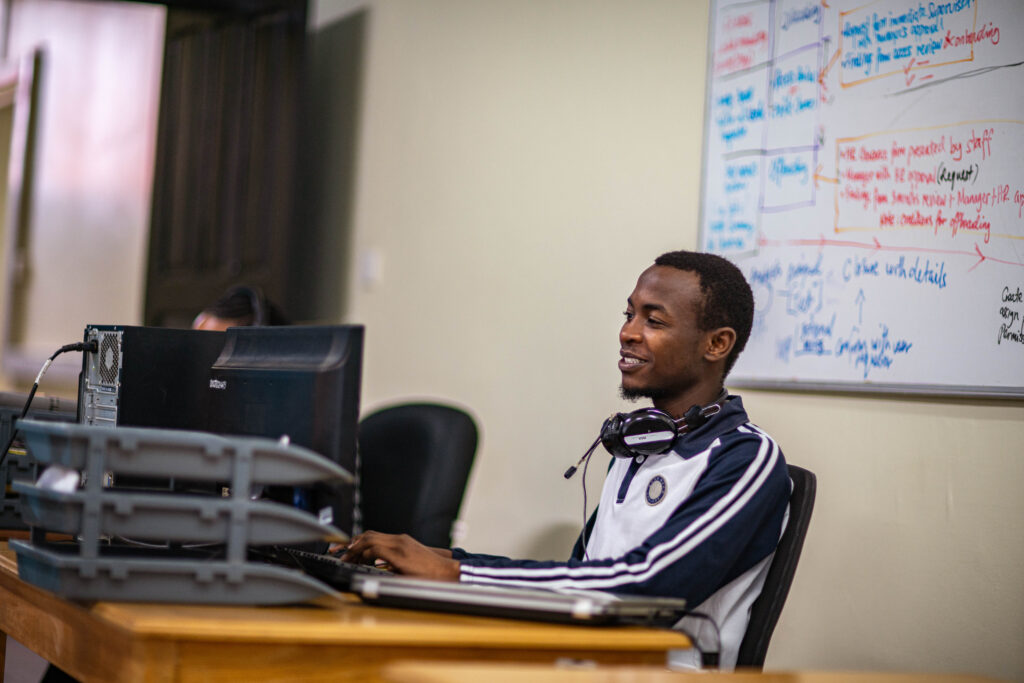
When Joseph joined St Jude’s in 2018 as a Form 1 student, he never predicted that a simple break-time conversation with friends would spark a passion that would shape his future.
“A group of students were talking about Java, a programming tool I’d never heard of. I’m the kind of person who looks things up if I don’t understand them. So, I went to the library and started reading everything I could about computers,” recalls Joseph, who graduated in the Class of 2024.
Before joining St Jude’s, Joseph completed his primary education at a local government school in Arusha, where computers were something he’d only ever seen from afar.
“I had never even touched a computer before coming to St Jude’s. I’d only seen them in movies and on screens, where they looked really cool. I just fell in love with them,” he says.
Eager to learn more, Joseph began teaching himself the basics of programming, using every resource he could find in the school library.
“The books I was reading were all in English, and I was still learning the language at that time. But I just kept going. I really fell in love with it and continued to teach myself,” he says.
Fast forward to today, and Joseph’s passion has come full circle. As part of his Community Service Year (CSY) - where Form 6 graduates have the opportunity to take part in a year of community service - he is volunteering in St Jude’s Corporate Applications team, using his skills to tackle real-world challenges and help improve internal systems at the school.
One of his most impressive contributions has been the development of an automatic system that tracks and manages government parking fees; a crucial task for St Jude’s, which operates a fleet of more than 30 vehicles.
“When the school buses park outside the school, the government charges a parking fee. Previously, staff had to manually check each plate number online to calculate the monthly charges. This was a time-consuming job, especially with so many vehicles to manage,” explains Joseph.
Now, thanks to his innovation, the system now automatically retrieves all St Jude’s bus plate numbers from the government portal and generates a report – saving valuable time and reducing the risk of errors.
“We’ve been improving it based on feedback. I keep refining it with input from the team. I’m now working on how to store the data for the records,” adds Joseph.
With his CSY wrapping up in July, Joseph has his sights set on tertiary studies in computer science or financial technology, with plans to eventually merge the two fields.
“The CSY program has been amazing. I’m learning so much, and it’s opened up a lot of opportunities," he says.
“Doing CSY at the place where my passion for computers began, and being able to give back using the skills I’ve developed from my time here, is very rewarding. I’m excited for what the future will bring.”
